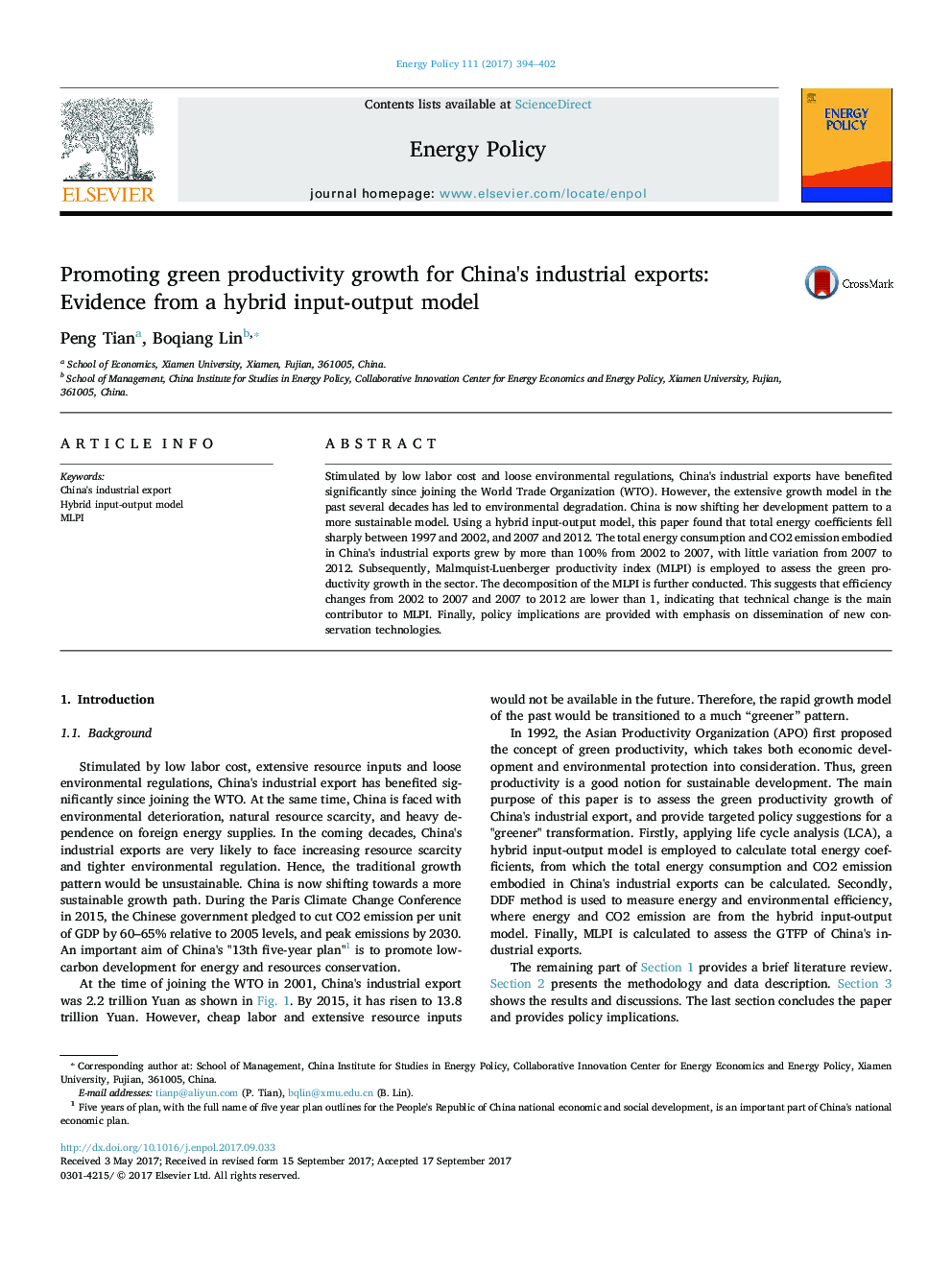| Article ID | Journal | Published Year | Pages | File Type |
|---|---|---|---|---|
| 5105511 | Energy Policy | 2017 | 9 Pages |
Abstract
Stimulated by low labor cost and loose environmental regulations, China's industrial exports have benefited significantly since joining the World Trade Organization (WTO). However, the extensive growth model in the past several decades has led to environmental degradation. China is now shifting her development pattern to a more sustainable model. Using a hybrid input-output model, this paper found that total energy coefficients fell sharply between 1997 and 2002, and 2007 and 2012. The total energy consumption and CO2 emission embodied in China's industrial exports grew by more than 100% from 2002 to 2007, with little variation from 2007 to 2012. Subsequently, Malmquist-Luenberger productivity index (MLPI) is employed to assess the green productivity growth in the sector. The decomposition of the MLPI is further conducted. This suggests that efficiency changes from 2002 to 2007 and 2007 to 2012 are lower than 1, indicating that technical change is the main contributor to MLPI. Finally, policy implications are provided with emphasis on dissemination of new conservation technologies.
Related Topics
Physical Sciences and Engineering
Energy
Energy Engineering and Power Technology
Authors
Peng Tian, Boqiang Lin,
